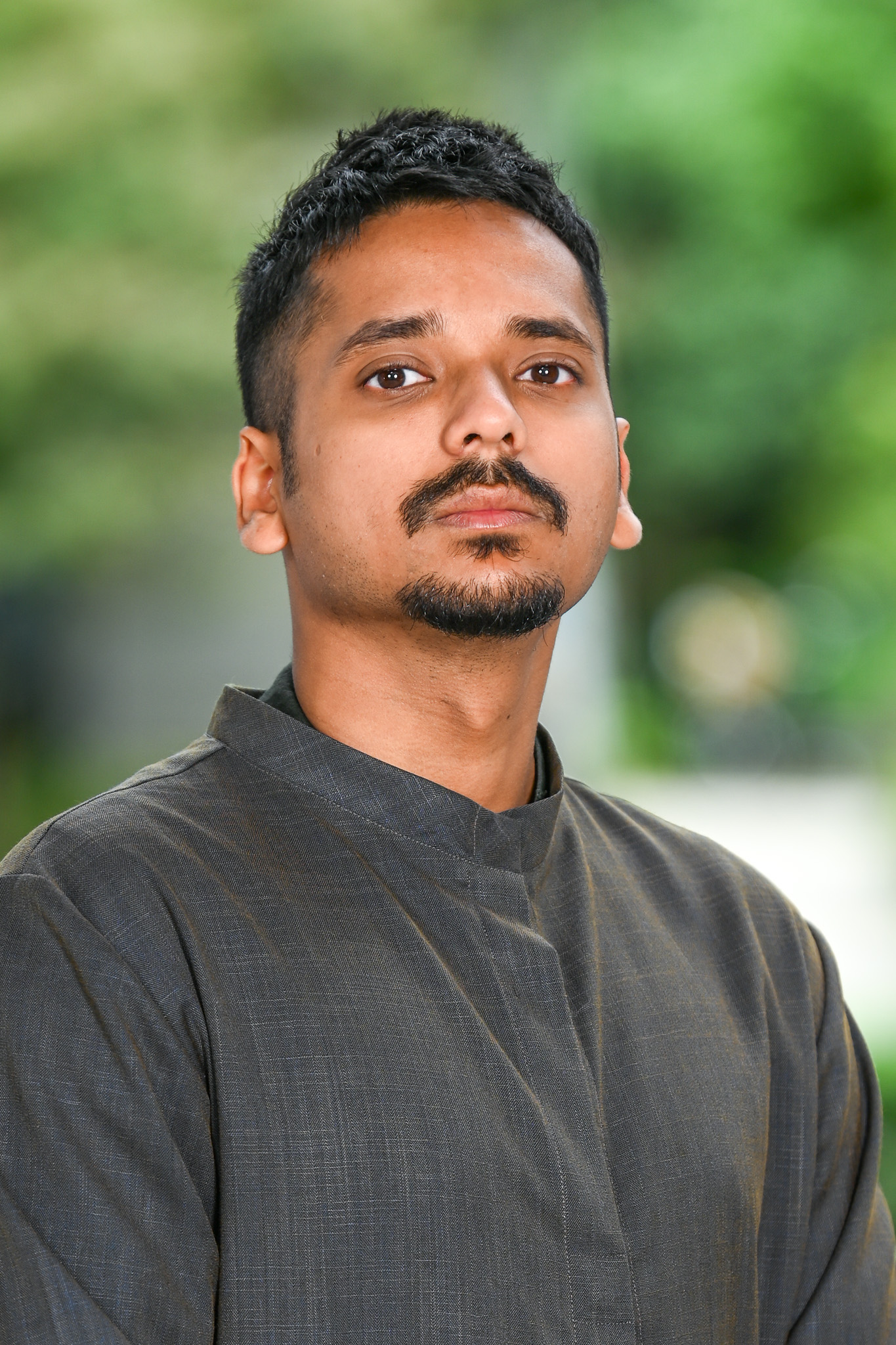Ishraki is a Clinical Assistant Professor of Visual Arts at NYU Shanghai. They are a transdisciplinary researcher who uses embodied performances, conceptual experiments, and community engagement to facilitate philosophical inquiries. They draw upon methodologies of both art and science to explore themes of posthumanism, art and science collaboration, sensory augmentation, and subjective experiences. Recent projects like "Poetics of Inquiry: How to Stay with Trouble," "Bacterial Consent," and "Sensory Augmentation" exemplify an art-science collaborative approach, navigating the curious space between the known and the unknown.
Select Publications and Exhibitions
- Synthetic Visual Sensations: Augmenting Human Spatial Awareness with a Wearable Retinal Electric Stimulation Device
Authors: Valdemar Munch Danry, Laura Chicos, Matheus Fonseca, Ishraki Kazi, and Pattie Maes
Publisher: Association for Computing Machinery, New York, NY, USA
Publication Type: Proceedings of the Augmented Humans International Conference 2024 (AHs '24)
https://doi.org/10.1145/3652920.3652932 - Alt-Alterity: An Immersive Virtual Exhibition
Jiang, A.X. Part 1. Unsung Wisdom, Rebel Tech. Ishraki Kazi, [pg. 44-52]
Publication Type: Book Chapter / Artist Interview
ISSN 2996-038x - Performing Trans-disciplinarity: Exploring Subjectivity and Objectivity in Knowledge Production
Publisher: Massachusetts Institute of Technology
Publication Type: Graduate Thesis
https://dspace.mit.edu/handle/1721.1/151247 - Film Screening: Anesthesiologist, MIT Museum, MA, US
- Exhibition: After the End, NADA Curated by Catherine Taft, New Art Dealers
Education
- MS, Art, Culture, and Technology
Massachusetts Institute of Technology - BFA
The Cooper Union
Research Interests
Art-Science Collaboration
Research-based Art
Phenomenology and Neuroaesthetics
Posthumanism
Non-human Agency and Subjectivity
Language and Communication


